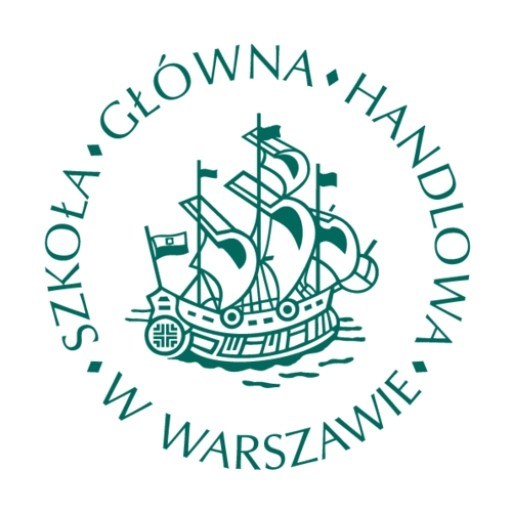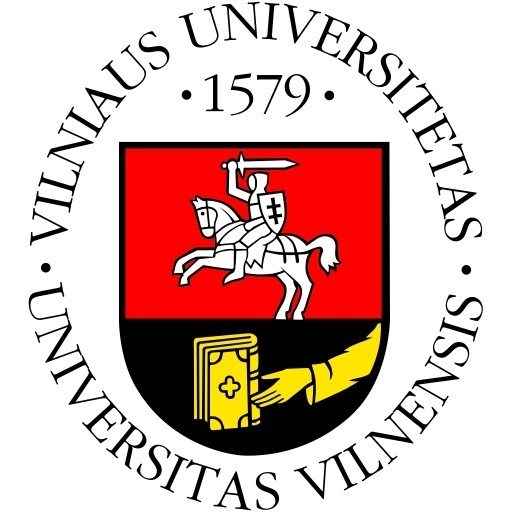Photos of university / #uabbarcelona
The MSc in Models and Methods of Quantitative Economics at Autonomous University of Barcelona is an advanced postgraduate program designed to equip students with comprehensive analytical and computational skills essential for addressing complex economic problems. This programme offers a rigorous curriculum that combines theoretical foundations with practical applications, enabling graduates to excel in research, policy analysis, and data-driven decision-making in various economic sectors.
Throughout the course, students engage with a diverse array of topics, including mathematical modeling, statistical inference, econometrics, optimization methods, and computational techniques. The programme emphasizes the development of strong quantitative skills, fostering proficiency in programming languages such as R, Python, and MATLAB, as well as the use of specialized software tools for economic data analysis. By integrating theory with hands-on projects, students learn to construct and validate economic models, interpret empirical data accurately, and develop innovative solutions to real-world economic issues.
The curriculum is carefully crafted to reflect current challenges in economics, such as market fluctuations, financial instability, environmental sustainability, and public policy effectiveness. Students also have opportunities to participate in seminars, workshops, and collaborations with industry and research institutions, gaining practical experience and professional networks. The programme prepares graduates for careers in academia, governmental agencies, international organizations, financial institutions, and consulting firms, where advanced quantitative skills are highly valued.
Additionally, the MSc program places a strong emphasis on critical thinking, problem-solving, and effective communication of complex quantitative analyses. Graduates leave with a solid foundation in economic theory and quantitative methods, along with the ability to apply these skills in diverse contexts. The interdisciplinary nature of the programme, which integrates insights from mathematics, statistics, and computer science, ensures that students are well-equipped to adapt to the evolving landscape of economic research and policy-making. This comprehensive training positions graduates to make meaningful contributions to understanding and resolving pressing economic issues on both national and global levels.
The "Models and Methods of Quantitative Economics" (QEM) program at the Autonomous University of Barcelona offers an in-depth exploration of advanced quantitative techniques and modeling strategies essential for understanding complex economic phenomena. Designed for students seeking to develop robust analytical skills, the program provides comprehensive training in mathematical modeling, econometrics, computational methods, and statistical analysis. Through a combination of theoretical foundations and practical applications, participants learn to formulate, analyze, and interpret economic models using modern quantitative tools. The curriculum covers a wide range of topics, including dynamic programming, optimization methods, time series analysis, and data-driven decision-making processes, all tailored to address real-world economic challenges. Students have opportunities to work on empirical research projects, utilize specialized software, and engage with data analysis techniques critical for careers in academia, finance, policy-making, and research institutions. The program emphasizes an interdisciplinary approach, integrating mathematical rigor with economic theory to enable nuanced understanding and innovative solutions. Courses are taught by experienced faculty members who are experts in their fields, providing mentorship and fostering a collaborative learning environment. Graduates of the QEM program are equipped with the skills necessary to perform sophisticated economic analysis, conduct empirical research, and contribute to policy development with a strong quantitative foundation. Overall, the program aims to prepare students to excel in roles that require analytical precision and methodological expertise, aligning academic knowledge with practical application in the dynamic field of economics.
The "QEM — Models and Methods of Quantitative Economics" programme at the Autonomous University of Barcelona requires prospective students to hold a bachelor's degree in economics, mathematics, or related fields. Applicants are expected to demonstrate a strong foundation in mathematical and statistical methods, as well as basic knowledge of economic theory. Proficiency in calculus, linear algebra, probability, and programming languages such as R or Python is highly recommended. The programme emphasizes analytical skills and quantitative reasoning, so prior experience with econometrics, data analysis, and computational tools is advantageous.
Admission may also involve the submission of academic transcripts, curriculum vitae, and a statement of purpose outlining the applicant's interest in quantitative economics and career goals. Some applicants might be asked to provide letters of recommendation from previous professors or employers who can attest to their analytical abilities and motivation. English language proficiency is typically required, with accepted tests including TOEFL or IELTS scores, unless the applicant's previous education was conducted in English.
The curriculum includes compulsory courses in advanced microeconomics, macroeconomics, econometrics, and mathematical methods designed to equip students with rigorous analytical and modeling skills. Electives may cover topics such as financial economics, development economics, and computational economics. To complete the programme, students are usually required to undertake a research project or thesis that demonstrates their ability to apply quantitative methods to real-world economic problems.
Students should also meet the programme's graduation criteria, which often include maintaining a minimum grade point average, completing all required courses, and submitting a final thesis. The programme may have specific prerequisites or co-requisites for certain advanced courses, and students are encouraged to consult the official course catalog for detailed programme structures and requirements. Overall, admission to and successful completion of the programme demand a strong quantitative background and a keen interest in economic modeling and empirical analysis.
Funding for the QEM — Models and Methods of Quantitative Economics program at Autonomous University of Barcelona is primarily obtained through a combination of university scholarships, government grants, and external funding sources. The university offers various scholarships and financial aid options to support students financially throughout their studies. These scholarships are often based on academic merit, financial need, or specific criteria such as nationality or demographic background. Additionally, students may have the opportunity to apply for Erasmus+ mobility grants or other European programs that support international study exchanges, which can offset costs associated with studying abroad or participating in international projects within the program.
Besides institutional scholarships, there are sponsorship opportunities from private corporations and industry partners involved in the field of economics and quantitative methods. These partnerships might include funding for research projects, internships, or specialized training modules, providing students with both financial support and practical experience that enhances their employability after graduation.
Funding may also be available through government programs aimed at promoting higher education and research in Spain. The Spanish Ministry of Education and local Catalan authorities sometimes provide grants or subsidized loans for graduate students, especially those pursuing programs aligned with national strategic priorities such as economic development, innovation, and data analysis.
Students enrolled in the program can also benefit from student loan programs, which are administered through Spanish financial institutions, offering favorable repayment terms for graduates. The university’s ecosystem encourages applicants to explore multiple avenues of financial support early in their academic planning process to ensure comprehensive coverage of tuition fees, living expenses, and other associated costs.
International students, in particular, are advised to seek external funding sources, including scholarships offered by their home countries or international organizations. Some EU-funded programs support international students pursuing master's degrees in economics and quantitative methods, providing additional financial assistance.
Overall, the financial landscape for students in the QEM program is diverse, combining institutional scholarships, governmental funding, industry sponsorships, and external grants to facilitate access to quality higher education. Prospective students are encouraged to consult the Autonomous University of Barcelona’s scholarship office and official websites for detailed and updated information regarding available funding options, application procedures, and eligibility criteria.
The Master’s Degree in Models and Methods of Quantitative Economics (QEM) at the Autonomous University of Barcelona (Universitat Autònoma de Barcelona, UAB) is a specialized postgraduate program designed to equip students with advanced skills in economic modeling, quantitative analysis, and the application of mathematical and computational techniques to economic problems. The program aims to prepare graduates for careers in research, consulting, and policy analysis, where rigorous quantitative methods are essential for decision-making and strategic planning in diverse sectors such as finance, government, international organizations, and academia.
The curriculum of QEM covers a broad spectrum of topics, including microeconometrics, macroeconomic modeling, game theory, optimization, and stochastic processes. Students engage with both theoretical foundations and practical applications, often involving extensive use of statistical software and programming languages such as R, Python, and MATLAB. This blend of theory and practice ensures that graduates are well-versed in the quantitative tools necessary for empirical research and data-driven decision support.
The program is typically structured to foster a strong analytical mindset, emphasizing problem-solving skills and the ability to interpret complex data sets. It also encourages interdisciplinary approaches by integrating insights from related fields such as operations research, computational science, and data science. Internationalization is a core aspect of the program, with courses often taught in English and opportunities for mobility within European university networks through Erasmus+ exchanges.
Students enrolled in the QEM program benefit from the university’s robust research environment and close connections with leading economic research centers. Faculty members are active researchers whose work impacts policy and academic debates globally. The program often features seminars, workshops, and guest lectures from prominent economists and industry experts, enriching the learning experience and providing networking opportunities.
Graduates of the QEM program are equipped to undertake doctoral studies or enter the workforce in roles that demand high-level quantitative expertise. They can work as economic analysts, quantitative researchers, data scientists, or econometricians in both the public and private sectors. Given the increasing importance of data-driven decision-making in economics and related disciplines, the demand for specialists with advanced modeling skills continues to grow.
The Autonomous University of Barcelona, as a prestigious institution, ensures that its programs are aligned with current academic standards and societal needs. The QEM program specifically adapts to the evolving landscape of economic research and practice, maintaining a curriculum that balances foundational theory with emerging methodologies in the field of quantitative economics. This comprehensive approach prepares students not only for immediate employment but also for lifelong learning and adaptation in a rapidly changing economic environment.










